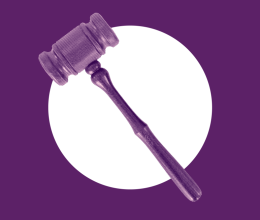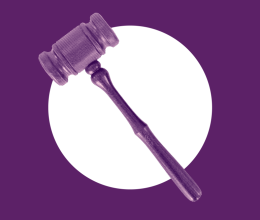
July 22, 2010
LITTLE ROCK, July 19, 2010 -- The City of North Little Rock has responded to concerns raised by North Little Rock residents and the Arkansas Civil Liberties Union concerning prayer before city council meetings. The Arkansas Civil Liberties Union, in response to concerns expressed by North Little Rock residents about the city council's practice of offering a sectarian prayer to open council meetings, contacted the city attorney and urged the city to end this unconstitutional practice.
Noting that only prayers which are nonsectarian and do not advance any one particular faith or belief are permissible under the law,and that prayers offered by the mayor and city alderpersons to open city council meetings had been exclusively Christian prayers, the ACLU asked city officials to discontinue the unlawful practice.
The city attorney met with city council members to discuss the law, the importance of being an inclusive community, the history of prayer before city council meetings, and the personal nature of prayer. The city responded to the ACLU and indicated that it would use a system of rotational prayer that would include other faiths as well as non-sectarian prayer. In addition, the city opted to include a statement on future city agendas and broadcasts of meetings that the city welcomes diverse cultures and beliefs and that any religious viewpoints expressed during the invocation or at any other time during city council meetings reflected only the personal opinion of the speaker and was not intended to proselytize, advance or disparage any particular faith.
After receiving the response of the city attorney, the ACLU reaffirmed its opinion the council's practice of offering a sectarian prayer runs afoul of the Establishment Clause of the United States Constitution because when only one sectarian viewpoint is routinely expressed, it has the purpose and effect of advancing one faith or belief to the exclusion of others. However, the ACLU's interest and that of the concerned residents was to see that the practice was no longer the status quo for the city. While the ACLU felt that the better policy would be to recognize that any prayer by city officials sends the wrong message to a diverse citizenry, it recognized that the law permits non-sectarian prayer.
"We sincerely appreciate the willingness of some council members to consider the wisdom, as well as legality, of sectarian prayer. The consideration of these city leaders is to be highly commended, for it not only helps alleviate some of the concerns of the complaining residents, but also because it will also likely keep us from having to file suit against the city," wrote ACLU staff attorney Holly Dickson. "We trust that you and the council members will ensure the opening prayer is diverse and non-sectarian, as represented to us in your correspondence," and "that the residents who first brought this matter to our attention will continue to monitor city council meetings."
The ACLU thanked city leaders who recognized the appropriateness of re-evaluating their longstanding practice.
-End



